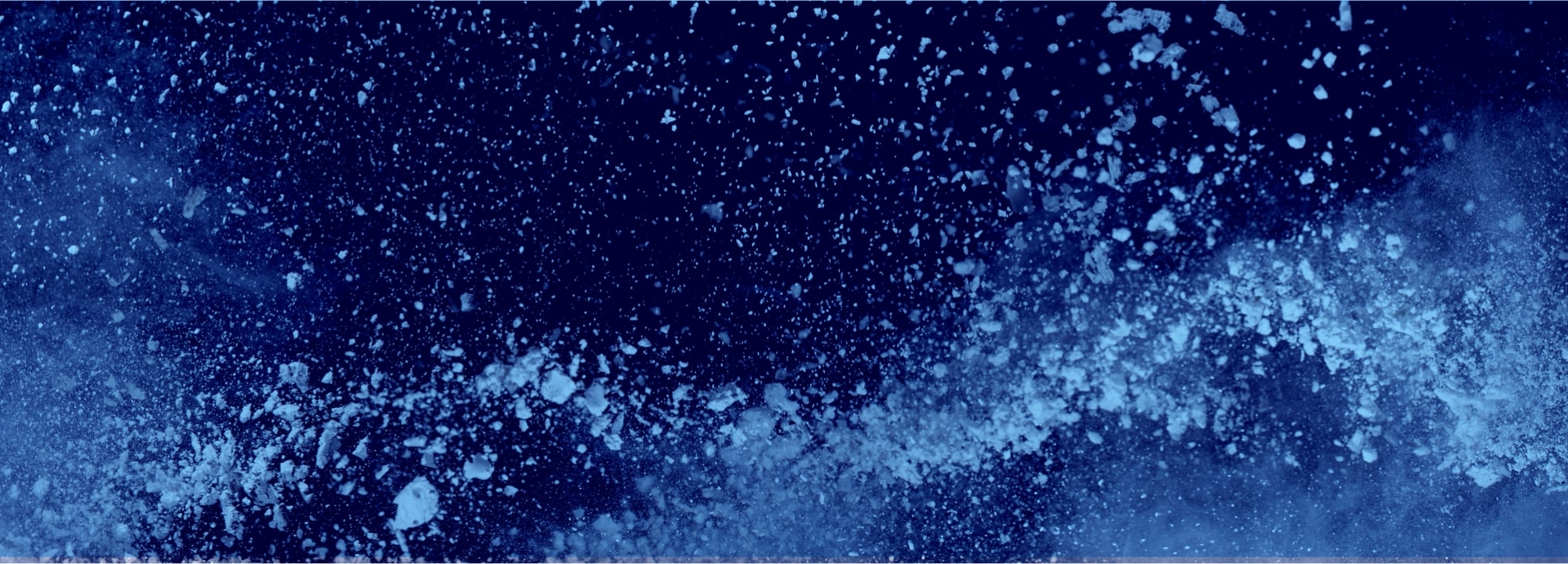Processing technology for resins using the cryogenic energy of liquefied natural gas
Cryogenic and Freezer Grinding using liquefied nitrogen
Predrying using dry air with an ultralow dew point

Frequently asked questions
<About contract grinding>
What kind of materials can be ground?
We believe that almost organic material or resin will be able to be ground as most materials tend to become brittle when cooled at low temperature.
- Inadequate:
- Thermosetting resins (after curing), inorganic compounds (e.g. ceramics, glass and minerals), fibrous materials (e.g. chemical fibers, carbon fiber, glass fiber), etc.
- Effective:
- Thermoplastic resins (e.g. super engineering plastics, elastomers and waxes)
How finely can the material be ground?
However, the particle size varies greatly depending on the type of grinder and the type of resin.
Also, productivity needs to be considered separately.
Is it possible to remove moisture from (dry) raw materials by cryogenic and freezer grinding?
Can Osaka Gas Liquid grind any material?
Please contact us first and submit the SDS.
What specific materials can be ground?
Examples)
・ Super engineering plastics: PPS, PES, PEEK, PTFE, etc.
・ Polyolefins: HDPE, UHMWPE, acid-modified polyolefins, etc.
・ Polyesters: PET, PBT, various other polyesters and elastomers, etc.
・ Polyurethanes: Various polyurethanes, elastomers, etc.
・ Others: Various polyamides, etc.
What is the minimum amount you will accept on contract?
We will grind your product on contract with the appropriate scale of grinder according to your requirements.
Can you accept only trial grinding?
Are there any restrictions on raw material size?
For larger materials, a coarse grinding process is required, which should be considered separately.
What is your grinding capacity?
However, the grinding volume varies depending on the grinder used, resin type and target particle size.
What is the yield (yield rate) during grinding?
However, the yield may be lower by classification or higher by an increased quantity processed at one time.
How long does it take to deliver trial ground product?
However, we may consult with you during busy times.
Is there any risk of foreign matter contamination?
・ We disassemble all the grinder parts and clean them by hand.
・ After cleaning, we perform visual inspection before assembling.
・ Dust collectors are installed in areas where there is a risk of contamination due to scattering.
What are the advantage of contract grinding?
Others
<About contract drying>
What kind of materials can be dried?
Examples) Polyester, polyamide and polyurethane
What happens if materials do not dry?
② Moisture content evaporates during the molding process in which heat is applied, causing wrinkles, pinholes and/or cavities and thereby leading to reduction in strength and optical properties.
How much can the drying process reduce the moisture content?
What are the differences from general drying methods?
In addition, by agitating materials during processing, our method makes drying more efficient and reduces processing time compared to the tray drying method.
Furthermore, compared to other methods, including the agitation method and the disk indirect heating method, pellets are agitated more mildly in our method, resulting in less damage to the pellets.



